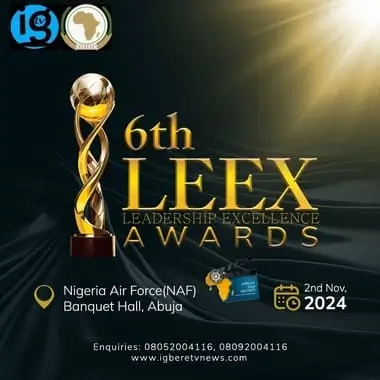the June 12, 1993 Election, despite having taken place over two decades ago, still remains a major talking point in Nigeria. But Folorunsho (surname withheld), a graduate of Mass Communication only has faint idea of who the acclaimed winner of the election, the late Moshood Kashimawo Olawale Abiola was as well as the details of the poll which was adjudged the fairest in the history of elections in Nigeria but was controversially annulled by former Military President, General Ibrahim Babangida . “I have heard people talk about the man on several occasions. From what I have heard, the man was a rich politician that contested an election.

I think the election was rigged and a new election was to be held. I am not really sure of how the whole thing went but I was aware the government in power did not hand over power to him until he died some years later,” Folorunsho said.
Unlike Adekunle, Faith (surname also withheld) demonstrated appreciable knowledge about the late MKO and his struggle to reclaim the mandate given to him by Nigerians in 1993. Ironically however, the graduate of Olabisi Onabanjo University, capitulated when questioned about Victor Olabisi Onabanjo who her alma mater is named after. “Sincerely speaking, I don’t really know much about him other than he was a former governor in Ogun State,” she said.
If the knowledge of history of major events and personalities in the country demonstrated by Folorunsho and Faith, two graduates as well a few others interviewed is anything but encouraging, undergraduates interviewed for the same purpose fared no better. Responding to the question on what was the major contention during the Nigerian Civil War, a respondent with the most ridiculous answer said, “It was a war fought by Nigeria to secure her independence from the British government,”
Interestingly, there is a common culprit for this sad development. Investigation by Sunday Sun showed that most secondary schools in Nigeria no longer offer History as a subject; a situation analysts claimed is responsible for the apathy towards history as well as the poor knowledge of history of major events in the country among Nigerian youths.
Although Folorunsho and Faith confirmed to Sunday Sun correspondent that they neither had History teachers nor studied it as a subject during their days in secondary schools, they conceded that they would not have included it in their list of subjects, even if it was taught in their school.
According to Folorunsho,“ When I was in secondary school History was made an alternative subject to Government and in my school then, we didn’t even have a teacher for the subject so all us were automatically made to go for Government. Personally, I would not have chosen History because I consider Government more relevant than History.”
Worried by the declining interest in the subject among students and the nonchalant disposition of education authorities in the country to History as a subject, a lawmaker from Ekiti State, Hon Ayodeji Oladimeji proposed a bill to address widespread ignorance of Nigerian history and major historical events around the world among Nigerians in primary and secondary schools.
The bill titled “A Bill for an Act to Make History a Core School Subject in Nigeria’s Primary and Secondary Schools and for other Related Matters,” according to the lawmaker was proposed in reaction to the removal of the subject from nation’s education curriculum in 2009.
The bill was however dealt a severe blow as it was rejected by the House of Representatives after members raised concerns about the implication of a language in it. Opposing the bill Hon Zakari Mohammed (APC, Kwara) picked a hole in the word ‘core’ in the heading of the bill which he described as problematic. “I know it’s important for a people to know their history, but the word ‘core’ in the title of the bill is somehow,” Mr. Zakari had said.
Zakari’s position was re-echoed by a few other lawmakers who demanded the bill be stepped down even when they spoke highly of its importance.
The lawmakers further argued that the parliament does not need to pass a bill strictly for the purpose of mandating History, maintaining that key subjects such as English language and Mathematics are being taught in schools without special legislative backing.
However, a lecturer in Department History, Delta State University, Dr Jude Asenime said the trend portends ominous implication for Nigeria as a nation. According to him, Nigerians are gradually becoming aliens to their own culture as a result of the failure to accord history its proper place in the country.
Dr Asenime blamed politicians for the development, which, he said, was aimed at manipulating Nigerians for selfish reasons. “A lot of people especially the political class want us to lose the memory of our past so that they can easily manipulate people.
“Most people who studied in the 60s, 70s and 80s, including science students studied History. Most of them could discuss the history of this country. But when they saw that people, because of their knowledge of history, had begun to question today, they decided to kill history,” he said.
He blamed what he called the growing lack of patriotism among Nigerians on their poor knowledge of history, saying, “History in itself arouses nationalistic instinct in man. Without history patriotism cannot come in. if you don’t belong to a place you can’t be loyal to the place.
“Patriotism has to do with territory, it has to do with time, it has to do with space, language and culture. Once you don’t study history you cannot identify yourself with any particular area. And if you cannot identify yourself with a specific area, I don’t see why you should be loyal to the place. That is what we are lacking,” he noted.
Speaking in similar vein, an historian, Omobolaji Kazeem described the poor knowledge of history among Nigerian youths as a national tragedy and called on concerned authorities to work towards reviving the study of history in the country. According to him, a person without a sense of history is like a man who wakes up with lost memory. “It is tragedy for the nation because you cannot understand the present without proper knowledge of the past.
“As an individual, as a nation you need to understand where you are coming from, where you are to be able to know where you are going. Nigeria is where it is today because majority of our leaders don’t sense of history.”








